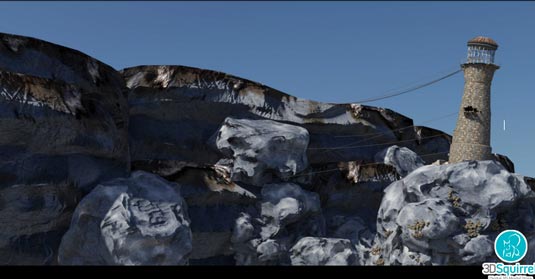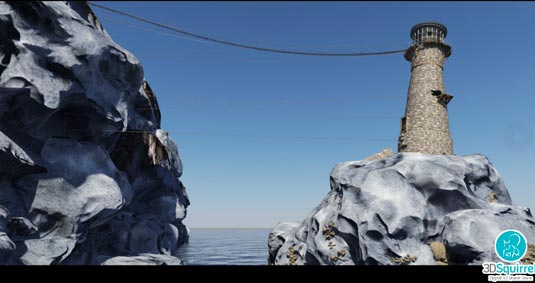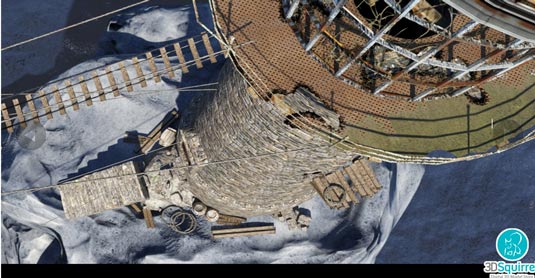3d Grapgic Design In Edison
How to design a lighthouse in 3D
Earlier in the year, 3D Squirrel launched a unique modelling challenge for 3D artists in association with 3D World magazine.
They invited artists to create either a single 3D model suitable for a remote Outpost or multiple assets that could be placed together to make "an intriguing scene".
Be inspired by these incredible examples of 3D art
This week on Creative Bloq we're bringing you the winning designs, along with some insights from the artists on how they were made, and tips for those who wish to follow in their footsteps. We start today with Arlen DeCambre. His third place entry can be seen above, and you can view it in 3D here.
01. What inspired the concept?
When I found out that the 3DSquirrel challenge was to create an outpost, I had just been in the city of San Francisco observing Alcatraz from the shore. Subliminally it must have resonated in the back of my head as a starting point for my lighthouse concept as Alcatraz is isolated from the mainland.

On my daily commute to work I ride my motorcycle along the northern bay with mountains far off in the distance. Near the end of the commute there is a significantly large bridge far off from where I am which brought a few key words to mind; "Connection, Length, Distance and Water". This all helped to shape the structure and design from concept to final render.
02. What software did you use?
I used a combination of 3ds Max, Zbrush and Photoshop.
03. What process did you follow?
Knowing that I was going to create a scene with a variety of hard surface materials, I wanted to use Zbrush to sculpt them. In a sense I threw myself into this environment as one of the inhabitants literally building my assets by "hand".

I started off making the base models in 3dsMax which allowed me to set up a simple scene while blocking out where things went. Then I used GoZ to bring my model(s) into Zbrush building up high details utilizing several brushes, Clay Buildup, Dam Standard, Trim Adaptive as well as Trim Dynamic to name a few.
Once done sculpting I would bake out my material maps; Diffuse, Normal, Spec, AO and Displacement for each asset. Originally my plan was to set up my scene in Unity5 for real-time lighting and PBR. But other variables got in the way.
Luckily my backup plan was to render the scene in 3ds Max using Mental ray, which was then my final presentation.
04. What were the biggest challenges?
Like my original Unity 5 plan, I had several aspects that were working the way I wanted to. My bump maps were not showing the detail I wanted in the lighting set up I had which made objects seem flat.

Also the lighting set up wasn't providing the time of day I wanted to display. Therefore I moved to plan B and finished in 3ds Max. Next time I will prevail!
05. What tips do you have for people entering similar competitions?
- Sketch out your ideas as much as you can till you have something that plans out your ideas.
- Look at reference both real-life and 3D when applicable. This will show you how it's made and how someone else managed to successfully create what you are trying to accomplish.
- Get feedback as well as give feedback to other artists. This is one of the most important things you can do.
- Time management is key. Don't wait till the last minute and work on things when you can. I was only able to really work on this project on the weekends but I tried to do at least 1-2 hours a night even just adding more to a texture or finishing up some set dressing. It all adds up.
- Have fun and enjoy what you are making!
You can find more information about future competitions at the 3D Squirrel website.
Like this? Read these!
- Top free 3D software for designers
- Discover the best blogging platform
- Free graffiti font selection
Related articles
3d Grapgic Design In Edison
Source: https://www.creativebloq.com/3d/how-design-lighthouse-3d-61515151
Posted by: buntinthim1975.blogspot.com

0 Response to "3d Grapgic Design In Edison"
Post a Comment